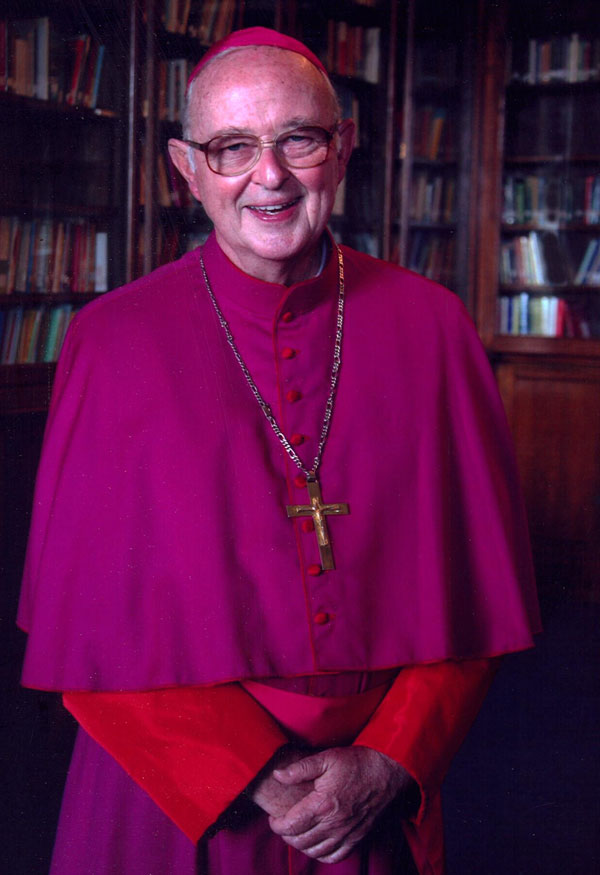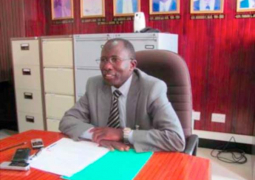
DEAR Brothers and Sisters, and all men and women of goodwill in The Gambia. Peace be with you.
The story of the death of Jesus ends with his burial. Luke tells us that the women who had come with him from Galilee were there. They took note of the location of the tomb and of the position of the body. They then returned to Jerusalem that evening to prepare spices and ointments. And on the Sabbath day they rested in accordance with the law.
Luke then followed up with the story of the Resurrection of Jesus in the last chapter of his Gospel.
The faithful women
On the first day of the week, at the first sign of dawn, the women went to the tomb with the spices they had prepared.
It is clear that they went to the tomb that morning for one purpose only: to anoint the dead body of Jesus. This was in keeping with local tradition. However, even more so in this case, it was a final gesture of respect, devotion and loyalty to their Master.
Luke names the women as Mary of Magdala, Joanna and Mary, the mother of James. These women disciples are also mentioned by Luke earlier on in the public life of Jesus. ‘They provided for him out of their own means’.
On arrival at the tomb, thewomen discovered that the stone had been rolled away, and that there was no body to anoint. Then two men appeared in dazzling garments, exactly as happened when Jesus was transfigured on Mount Tabor.They said to the women: ‘Why look among the dead for someone who is alive? He is not here’.
These messengers of God merely confirmed what the women had already observed. But they added some extra words: ‘He has risen. Remember that he told you how the Son of Man must suffer and die and on the third day rise from the dead.’ Therefore, there was no point in staring into an empty tomb.
As soon as they began to see the situation, they left the tomb and ran to tell the apostles what had taken place. But to the apostles, the women’s story of the women seemed sheer nonsense.
Why did the apostles at first disbelieve the women?
Hardly surprising?Women at that time had no right to testify in such matters, and they could not study the Torah.
Secondly, the apostles were grieving over the loss and tragedy of Jesus’ death. Most of them had run away when Jesus was arrested. Peter was still hurting bitterly with the guilt of having denied his Master.
Thirdly, the apostles were the closest followers of Jesus. They were afraid that the Jewish religious leaders or the Roman authorities would come to arrest them next. Grief, guilt and fear prevented them from believing.
But Peter decided to run to the tomb and see for himself. As he looked into the empty tomb, he could see that there was no body. Alone as he was, he might have remembered the day when he told Jesus: ‘Lord, this must never happen to you,’ when Jesus spoke about his passion and death.
And then… Yes, Jesushad also said something about rising again.
Perhaps Peter now began to wonder….a first step to belief? And so he went back to his companions in the Upper Room.
Fragile beginning
No matter how we look at the Gospel stories of the resurrection, they present us with a very fragile start for a religion that has endured for almost 2000 years.
On that first Easter morning, no one saw what happened or did not happen. What happened in the tomb was known only to God the Father and Jesus. In spite of this, that is where most of us today still try to focus our thoughts - on the empty tomb. ‘Why look among the dead for someone who is alive?’
The Gospel stories of the resurrectionrecord the appearances of Jesus to his disciples over a period of 40 days before he ascended into heaven. These appearances were filled with powerful experiences of hope and new life.
At the same time, joy was often mixed with doubt. Thomas won the prize for refusing to believe until Jesus invited him to put his hand into his side, where the centurion used a spear to test if he had died.
Entrusted to us
The Risen Lord has now entrusted his mission into our hands, hands that are weak, broken and sinful people like Peter, Thomas, Matthew, Zaccheus and the Samaritan woman at the well.
Jesus knows our capacity for deceit, for greed, for lust and for power. If he could put his trust in our forefathers, he also calls us today to serve him to the best of our ability. If I can only accept his compassion, his mercy and his understanding of myself, then I can begin to share that same gentleness of his towards my brothers and sisters who also struggle to live an upright life.
This is good news for all of us. This could be, once again, the beginning of heaven on earth where, together, we re-create a world where the need to accuse or blame or condemn each other gives way to a world of goodwill, peace and above all mercy.
May Christ that morning star who came back from the dead, shed his peaceful light on all of us today – our families, our churches, our Muslim brothers and sisters, all other believers, and our Head of State and our government. Amen



